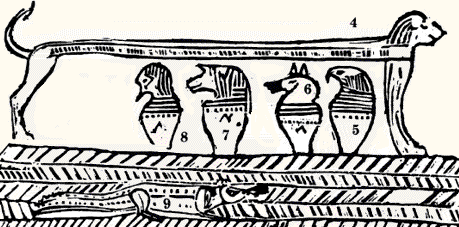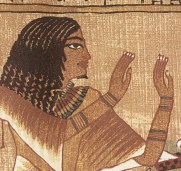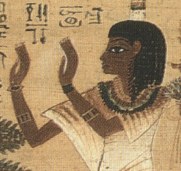There can be no doubt about it! Look closely. How did the artist envision the so-called priest?
Is he a black man, a negro? No.
Black as in Anubis? No.

He's a white man dressed in black! Just look at the head and the hand -- the skin is white. The arm, body, legs, and feet are black because they are black CLOTHING! Notice the collar and the kilt are accessories to the clothing. I had never noticed that before!! The man is dressed in BLACK, not unlike Johnny Cash, the man in black. This is how the artist visualized Smith's priest in the publication of the Facsimile. This goes to show just how WRONG the Mormons (including Smith) were in interpreting Egyptian iconography. It's so far off the mark. Everything Smith said about Facsimile No. 1 was far off the mark!




